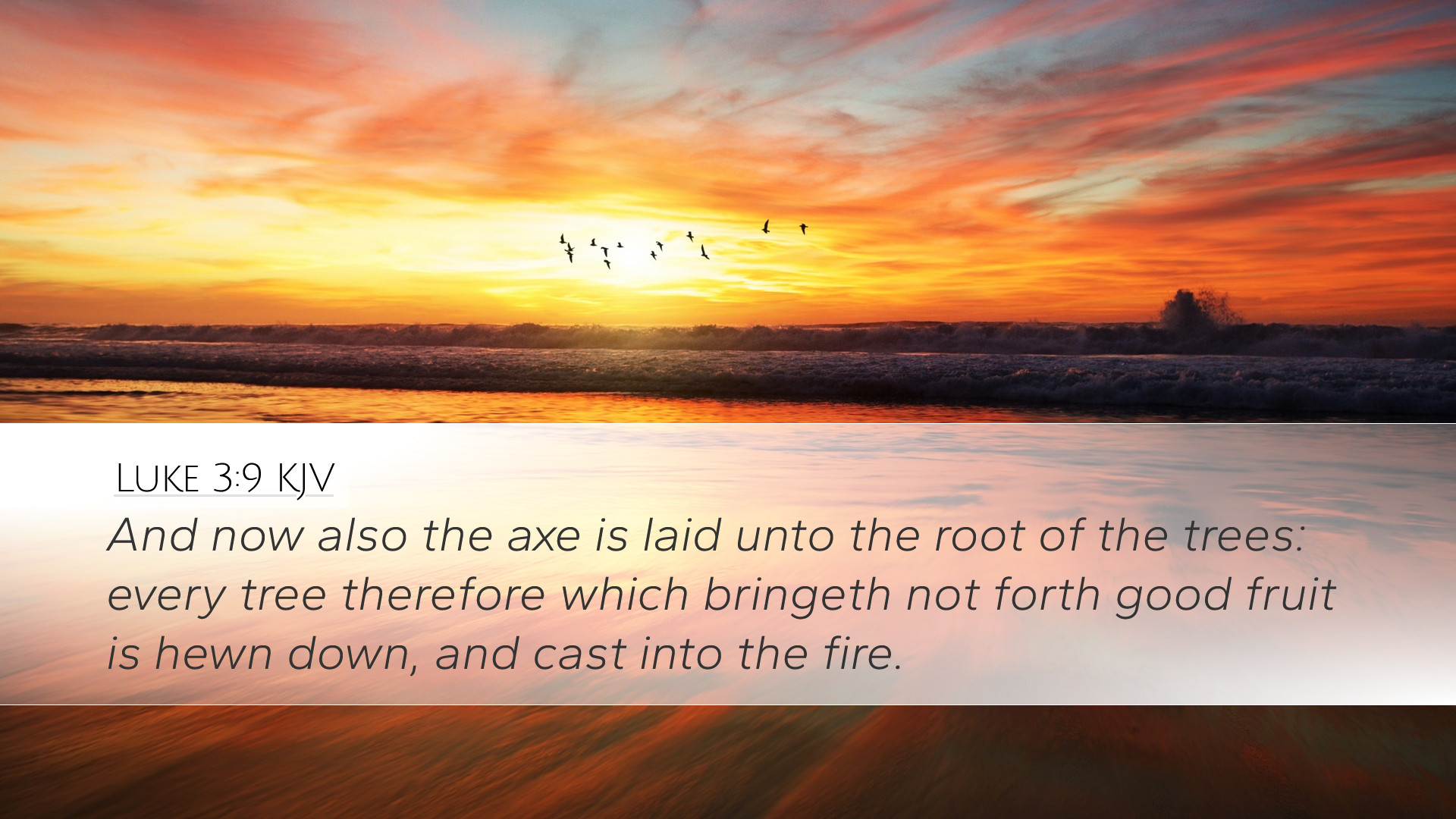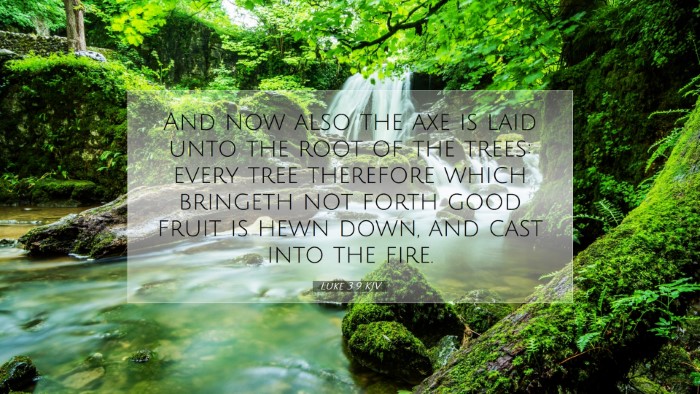Commentary on Luke 3:9
Luke 3:9 states:
"And even now the axe is laid to the root of the trees. Therefore every tree which does not bear good fruit is cut down and thrown into the fire."
Contextual Overview
This verse appears within the context of John the Baptist's exhortation to repentance. It serves as a warning to those who presume upon their heritage or ritual without genuine transformation. John calls for fruits worthy of repentance, emphasizing the necessity of a true change of heart that produces good works.
Commentary Insights
Several public domain commentaries provide valuable insights into the meaning and implications of this verse.
Matthew Henry's Commentary
Matthew Henry emphasizes the urgency of repentance symbolized by the imagery of the axe. He notes that it is not merely the fruit that is expected but good fruit, which denotes the quality of one's life and actions.
- Symbolism of the Axe: The axe signifies impending judgment. It is already laid at the roots of trees, suggesting that the time for bearing fruit is limited.
- Nature of True Repentance: Henry explains that genuine repentance is reflected in a transformed life, resulting in actions that align with godly principles.
- Warning to the Unfruitful: The mention of trees being cut down serves as a dire warning to those who ignore the call to bear good fruit.
Albert Barnes' Notes on the Bible
Albert Barnes offers a perspective focused on the metaphor of the trees and their fruits. He explores the theological implications of the verse.
- Repentance as a Requirement: Barnes indicates that repentance is essential for spiritual vitality, and without it, individuals become akin to barren trees, fit only for destruction.
- Covenant Relationship: He points out that the unfruitful trees may represent individuals relying on cultural or familial ties for their spiritual condition, highlighting the necessity of personal faith.
Adam Clarke's Commentary
Adam Clarke provides a more detailed exegesis on the metaphorical aspects of the verse.
- Fruitfulness as Evidence of Faith: Clarke argues that the 'fruit' is symbolic of the evidence of one's genuine relationship with God, manifested through good deeds.
- Concept of Judgment: He elaborates on the depiction of God's judgment, where unfruitful lives will inevitably face chastisement and separation from His grace.
- Call to Action: Clarke highlights the need for a readiness to respond to God's call for repentance, as it is a critical requirement for receiving His mercy.
Theological Implications
Luke 3:9 powerfully encapsulates the necessity for believers to examine their lives in light of God's expectations. The overarching themes derived from these commentaries emphasize several key points:
- Personal Accountability: Each individual is responsible for their spiritual condition and the fruits they produce.
- God’s Holiness: God's holiness and justice demand a response, and He desires genuine transformation rather than superficial adherence.
- Christological Fulfillment: Implicit in this text is the anticipation of Christ, who ultimately fulfills the requirements of righteousness and calls humanity to repentance.
Practical Applications
For pastors, students, and theologians, the verse and its commentary serve as a foundation for practical Christian living.
- Self-Reflection: Continuous self-examination should be a practice among believers to ensure they are bearing fruit in accordance with God’s will.
- Teaching Repentance: Leaders in the church are tasked with teaching the importance of genuine repentance as a core part of discipleship.
- Encouragement to Bear Fruit: The church must encourage and equip its members to engage in good works, showcasing the love and grace of Christ in action.
Conclusion
In sum, Luke 3:9 serves as a pivotal exhortation for believers, urging them to respond to God with genuine repentance and to bear good fruit in their lives. The insights from Matthew Henry, Albert Barnes, and Adam Clarke provide a comprehensive theological framework that emphasizes the necessity of personal accountability and the urgency of God's call to repentance.


